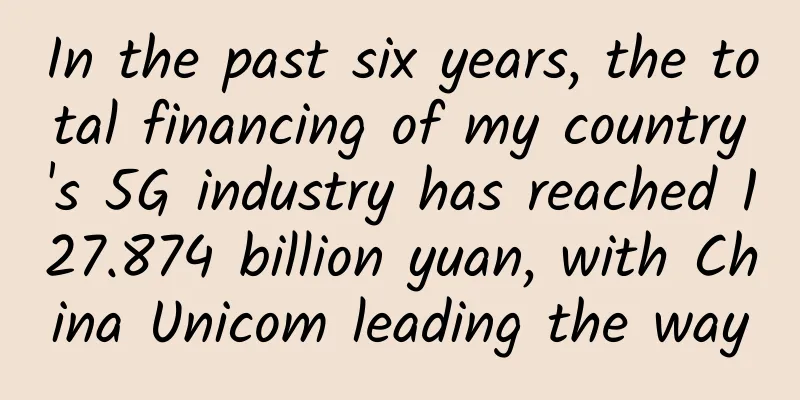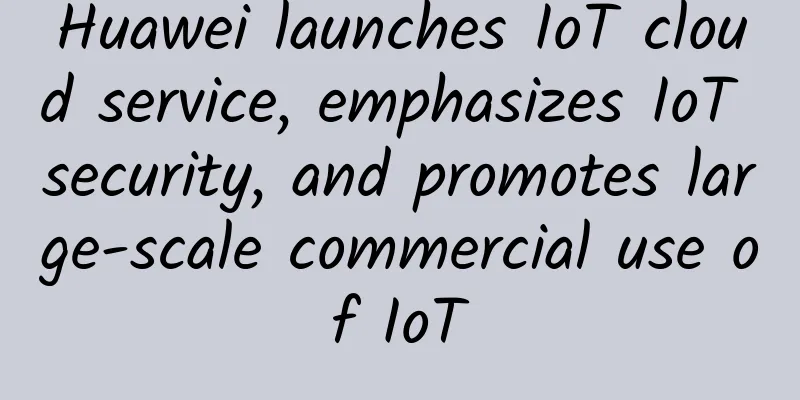Goodbye 2G, hello 5G

|
This article is reprinted from the WeChat public account "Network Optimization Mercenary", the author is in correspondence. To reprint this article, please contact the WeChat public account "Network Optimization Mercenary". Goodbye, 2G! On May 25, 2021, the Ministry of Science and ICT of South Korea officially announced the approval of the application of operator LG U+ to shut down its 2G business. Following the closure of 2G services by two other Korean mobile operators, KT and SKT, in January 2012 and July 2020, LG U+ will terminate its 2G service by the end of June 2021.
Turn off 2G service This marks the end of the 25-year-old Korean 2G (CDMA) and its complete farewell to the stage of history. Hello, 5G! In May 2021, the Ministry of Science and ICT of South Korea released the latest statistics showing that South Korea's 5G network traffic surpassed 4G for the first time since 5G was commercialized in April 2019. Data shows that in March 2021, the total data traffic generated by South Korea's 5G network was 368,025TB, slightly higher than the 363,301TB of 4G networks. At the same time, as 5G network traffic continues to rise, South Korea's 4G network traffic has shown a gradual downward trend. This marks that South Korea has truly entered the 5G era. A time periodWhen talking about the history of 2G in South Korea, we must first talk about the history of telecommunications reform in South Korea. Somewhat similar to the history of my country's telecommunications industry, in the 1980s, that is, in the 1G era, South Korea's mobile communications business was exclusively operated by Korea Mobile Telecommunications (KMT), a subsidiary of the state-owned Korea Telecom. In order to accelerate the popularization of mobile services, South Korea began to privatize the telecommunications industry and lowered the telecommunications entry threshold to introduce competition. After this round of reform, the Korean telecommunications market saw the emergence of a pattern of five mobile operators competing on the same stage: SK Telecom, Shinsegi Telecom, KT Freetel, Hansol PCS, and LG Telecom. Then in the 21st century, after a series of mergers, the current pattern of three mobile operators competing: SKT, KT, and LG U+ was formed. Among them, KT Freetel and LG Telecom can be regarded as the predecessors of the current KT and LG U+. In the 1990s, when the transition from 1G to 2G was underway, when most regions and manufacturers in the world were focusing on the GSM standard proposed by Europe, South Korea took a different approach and chose CDMA technology, which was relatively backward in commercial maturity. In January 1996, Korea Mobile Communications (the predecessor of SKT) launched the world's first 800MHz-based CDMA IS-95A service in Seoul. Subsequently, operators such as KT Freetel and LG Telecom launched CDMA services based on PCS (1800MHz).
It is in this context that the fierce market competition has promoted the rapid development of South Korea's CDMA business. In August 1998, South Korea was the first in the world to achieve IS-95B service with a maximum transmission rate of 114Kbps. In October 2000, the world's first commercial CDMA2000 1X was launched. In January 2002, South Korea was the first in the world to commercialize CDMA2000 1X EV-DO, with a maximum data transmission rate of 2.4Mbps. According to statistics, before the commercialization of CDMA, the total number of mobile communication users in South Korea was 1.5 million, and in 2000, this number reached 27 million, a 15-fold increase. It can be said that in the 2G era, South Korea created the CDMA myth. Thanks to the bold introduction of CDMA, South Korea gradually transformed from an importer of mobile communication equipment and terminals to a major exporter in the 2G era, becoming a leading country in global mobile communication technology, and also made Korean telecommunications equipment and terminal manufacturers represented by Samsung and LG emerge as a dark horse. It is no exaggeration to say that Korean CDMA saved Qualcomm and also made the Korean communications industry a success. The Korean industry generally believes that CDMA is the foundation for the rise of the Korean communications industry. On this basis, South Korea has gradually become a telecommunications power and has continued to promote 3G, 4G and 5G leadership. However, in the 3G/4G era, as CDMA's disadvantages in technological evolution gradually emerged, the successful Korean 2G CDMA also began to decline. In the 3G era, SKT and KT chose WCDMA technology, and then gradually migrated 2G CDMA users to 3G WCDMA. For example, KT's 2G user number was only about 1 million in 2011. In the 4G era, due to the scarcity of spectrum resources, in order to re-cultivate the 2G frequency band for 4G LTE use, KT took the lead in obtaining approval from the Ministry of Science and ICT of South Korea and announced the termination of 2G services in early 2012. Due to relatively abundant spectrum resources, SKT officially terminated its 2G service in July 2020. KT and SKT have both faced opposition from the Korean public and media regarding the termination of their 2G services. However, the Korean Ministry of Science and ICT believes that 2G CDMA equipment has been in operation for more than 20 years, and that aging equipment has led to frequent failures, and insufficient spare parts have made it impossible to repair the equipment. There is a high risk of failure, and the maintenance cost is also quite high. Therefore, it is not suitable to continue operating. On the other hand, from the perspective of spectrum utilization, the number of 2G users in Korea at that time only accounted for about 1% of the total number of mobile users, and Korean CDMA occupied the golden frequency bands of 800MHz and 1800MHz. If the 2G network is not shut down, it will be a waste of spectrum resources. 2G CDMA mobile phone LG U+ is the only Korean mobile operator that did not introduce WCDMA technology in the 3G era. It uses EV-DO Rev.A/B technology based on CDMA2000, which is equivalent to a direct transition from 2.5G to 4G LTE. This is why it has not been approved to shut down its 2G network. Although the number of LG U+'s 2G users was only about 370,000 by November 2020 (this number dropped to 140,000 by May 2021, accounting for only 0.82% of the total number of LG U+ mobile users), the Korean Ministry of Science and ICT believes that LG U+ has been upgrading based on CDMA technology, has a long operating time, and relatively new network equipment. In addition, after SKT shuts down its 2G service, LG U+ will have to bear some of the 2G users who have ported their numbers to SKT. Therefore, LG U+ was identified as the last operator in South Korea to shut down its 2G business. It was not until May 25, 2021 that LG U+ was officially approved to shut down its 2G service. Since then, after 25 years of history, South Korea's 2G has officially come to an end! An era beginsOn the afternoon of April 3, 2019, a tense atmosphere filled the conference room of the Ministry of Science and ICT of South Korea. Executives from South Korea's three major operators and Samsung Electronics were holding an emergency meeting with government officials in charge of communications. Just a few hours ago, they received an important intelligence that the US operator Verizon will commercialize 5G on April 4, a week earlier than its original plan of April 11. South Korea's three major operators originally planned to commercialize 5G on April 5. Now that Verizon has moved up the time for commercializing 5G, South Korea will lose the title of "the world's first commercial 5G". Therefore, the South Korean government, the three major operators and Samsung Electronics held an emergency meeting and finally decided to advance the 5G commercialization time to 23:00 on April 3 to regain the title of "world's first". And just like that, at 23:00 on April 3, 2019, just one hour ahead of Verizon, South Korea's 5G was officially announced for commercial use. As of today, South Korea's 5G has been commercially available for two years and one month. What achievements has South Korea's 5G made? First of all, from the perspective of operators, 5G has indeed driven the growth of revenue and profits of Korean operators. Not long ago, the Korean media described the performance of the three major Korean operators in the first quarter of 2021 as "surprising". In the first quarter of 2021, LG U+'s sales were 3.41 trillion won and its operating profit was 275.6 billion won, up 4% and 25.4% year-on-year respectively, and its operating profit hit a new high since the commercial use of 5G; KT's comprehensive sales were 6.294 trillion won and its operating profit was 444.2 billion won, up 3.4% and 15.4% year-on-year respectively; SKT's comprehensive sales and operating profit were 4.78 trillion won and 388.8 billion won, up 7.4% and 29% year-on-year respectively. The total operating profit of the three major operators has achieved a new high since the commercial use of 5G. According to analysis, new businesses with content as the core have grown significantly. Secondly, from the perspective of industrial ecology, South Korea's 5G first-mover advantage has driven the development of South Korea's entire industrial chain. For example, according to the latest statistics from market research firm Dell'Oro, Samsung accounts for about 7.2% of the global 5G equipment market share, and has become the world's fifth largest 5G equipment supplier after Huawei, Ericsson, Nokia and ZTE, achieving a breakthrough in the 5G era; South Korea's KMW has not only turned losses into profits in the 5G era after experiencing continuous losses through foundry and provision of radio frequency devices, but also increased its turnover and profits. In addition, thanks to the successful commercial experience of 5G, South Korean operators are also actively exporting 5G network construction consulting services and immersive content solutions to overseas operators. For example, SKT has established a strategic alliance with Deutsche Telekom to export network construction design and transmission-related technologies to Deutsche Telekom to help Deutsche Telekom accelerate 5G commercialization; KT provides 5G network design consulting services to operators in Vietnam, Saudi Arabia and other countries; LG U+ has signed a 5G VR content export contract with Hong Kong Telecom, and so on. According to the latest data from the Ministry of Science and ICT of South Korea, as of the end of April, the number of 5G terminal users in South Korea reached 15.15 million. This is the first time that the number of 5G users has exceeded 15 million since it was commercialized on April 3, 2019, about two years and one month. Although these 15 million 5G users only account for 21.2% of the total number of mobile users in South Korea, it is worth noting that the total mobile data traffic contributed by these 21.2% of 5G users has surpassed 4G. Data shows that in March 2021, the total data traffic generated by South Korea's 5G network was 368,025TB, slightly higher than the 363,301TB of the 4G network. At the same time, on the other side of the rising 5G network traffic, the 4G network traffic hit a record high in March 2020 (a single-month traffic of 470,000TB), and then showed a gradual downward trend. On the one hand, 5G traffic has surpassed 4G, while on the other hand, 4G traffic has gradually declined. It is not difficult to see that South Korea has truly entered the 5G era. An era has ended, and a new era has arrived. Goodbye, 2G! Goodbye, CDMA! Hello, 5G! |
<<: 2021: Connectivity disruptors
>>: Protocol-Oriented Programming and Cocoa (Part 1)
Recommend
[Black Friday] Hostons: 25% off VPS/VDS starting from $12/year, free double hard disk + double monthly traffic @10Gbps, multiple data centers in Los Angeles/Salt Lake City, etc.
Hosteons has also had frequent promotions in the ...
Are the operators wronged when being questioned about “4G speed reduction and 5G hibernation”?
Recently, a piece of news about "Luoyang Uni...
Detailed explanation: Three technical routes to achieve wide-area deterministic networks
Last time, we introduced the background of determ...
Report: Amazon, Microsoft and Google account for half of all major hyperscale data centers
Amazon, Microsoft and Google account for more tha...
Google and Facebook to build new submarine cable connecting Japan and Southeast Asia in 2024
On August 16, Google and Facebook jointly announc...
From "eating meat" to "drinking soup": the difficult transformation of telecom operators
According to the established plan, the three majo...
RAKsmart: Popular VPS starting at $0.99 per month, 30% off on all regular VPS, Los Angeles/San Jose data centers
RAKsmart is a foreign hosting company operated by...
What does a 5G base station look like? What is the difference between it and 4G?
This is what ordinary people think of 4G and 5G b...
The era of 5G, cloud computing and virtual business practices
In 2022, virtual enterprises can achieve digital ...
Yunfan accelerates the "live broadcast +" SaaS solution to promote live broadcast into a new era
2016 is known as the "first year of online l...
Enterprises are joining in one after another, rapidly expanding the 5G private network "circle of friends"
As we enter 2021, the industry is increasingly ca...
RAKsmart: Japan/Korea servers start from $59/month, US servers start from $30/month, high-defense servers start from $79/month
Friends who need independent servers in Asia such...
2017 Integrated Cabling Industry Analysis Report
1. Overview of the development of the integrated ...
WeChat tests voice progress bar function, netizens: finally it's here
The video progress bar was once added by Tencent ...
[6.18] 80VPS regular VPS 50% off, special VPS annual payment starting from 199 yuan, multiple data centers in the United States/Hong Kong/Japan/Korea, etc.
80VPS has released a permanent 50% discount code ...









